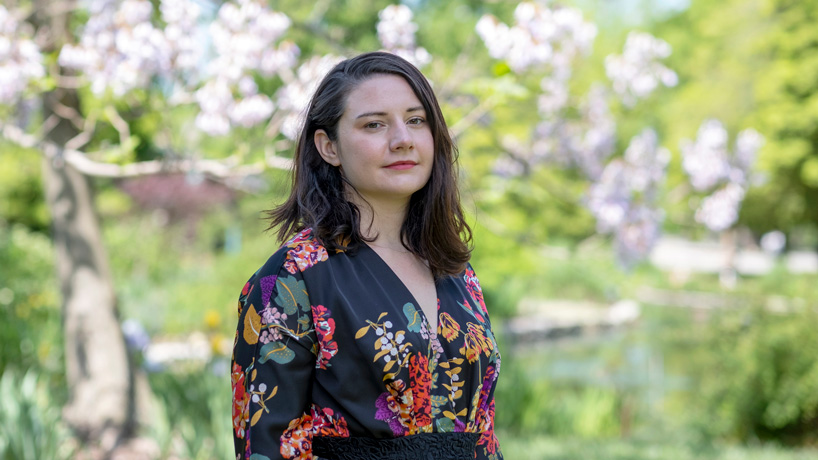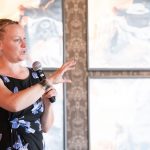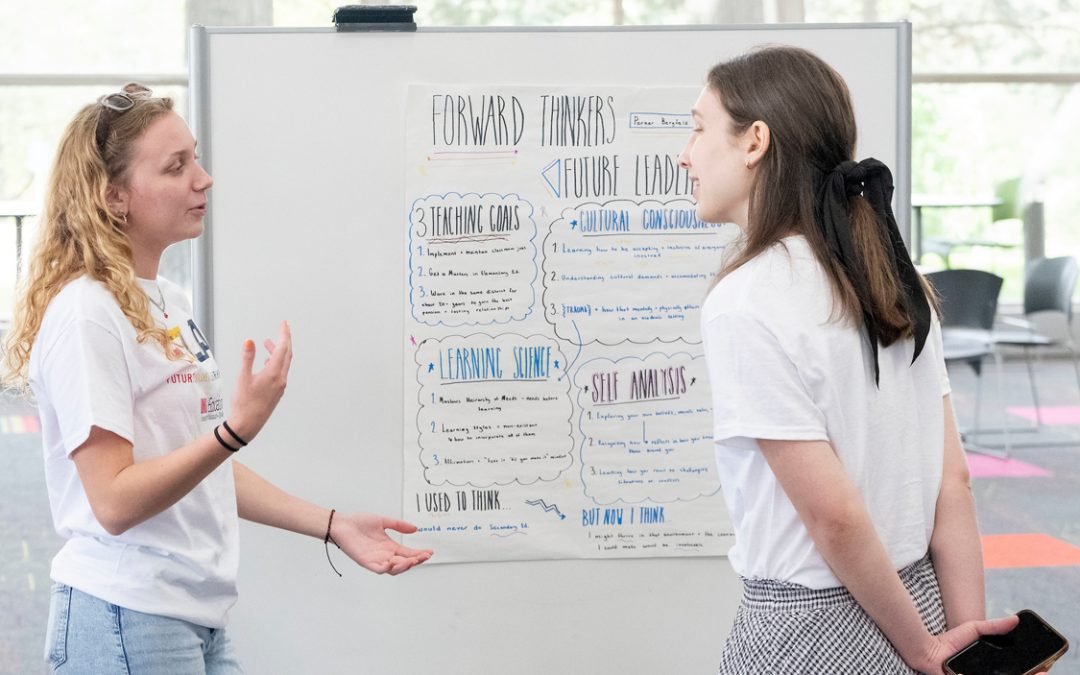
Political science PhD graduate Mary Painter used her doctoral dissertation to examine the policy decisions that created the two-tiered system of regulation that has allowed Uber and Lyft to thrive in cities across the country. (Photo by August Jennewein)
Millions of people each month turn to Uber or Lyft when they need to get to the airport or home from a restaurant or bar late at night in cities across the United States.
In the past decade as the transportation network companies spread across the country, they upended the taxicab industry and disturbed public transportation because of their relatively low costs, go-anywhere convenience and the hip feeling users experienced ordering rides via smartphone app.
But they’ve often not been competing on a level playing field with older, would-be rivals.
New University of Missouri–St. Louis political science PhD graduate Mary Painter used her doctoral dissertation to examine the policy decisions that created a two-tiered system of regulation that has allowed Uber and Lyft to thrive. She also touched on some consequences from those decisions in a project titled “Curb-sided: How Technology Disrupts the American Transportation Planning Process.”
“What I was trying to understand was how we even got to this spot in the first place,” Painter said. “Why do technology companies have so much weight and so much control in cities? They have way more lax regulation and policy than taxicabs. They self-regulate things like oversight, whereas taxicabs have stringent oversight.
“I think what really interested me about that is how these transportation companies were able to get the system to play in their favor. It says something about power.”
Painter focused much of her research on how Uber and Lyft made their way into the cities of Austin, Chicago and St. Louis and discovered a common playbook encapsulated by punctuated equilibrium theory.
In a policy sense, the theory posits that significant changes occur when actors use issue framing to control the narrative about a policy problem and venue shopping to find a level or institute of government sympathetic to their cause.
Uber and Lyft had great success trumpeting their new technology as a solution to whatever problems people saw in transportation, particularly with taxicabs that were perceived as expensive and inefficient.
Mayors were quick to back them coming into new cities because they offered a way to brand those cities as tech savvy and on the cutting edge, and they brought the promise of creating new jobs and growing the tax base.
They might have met some resistance from the local taxicab commission, pushing back against their arrival and attempting to regulate their operations. But the companies have been able to go over those local agencies – including to supportive state legislatures – to get laws passed with limited regulations.
“She really has been on a hot topic here,” said Todd Swanstrom, the E. Desmond Lee Endowed Professor in Community Collaboration and Public Policy, who served as the chair of Painter’s dissertation committee. “These transportation network companies are just going great guns. They’re just an incredible game changer in cities across the country and the world, so how we regulate them is a big issue.”
So are the costs, from the financial losses suffered by taxicab operators – some of whom invested retirement savings into purchasing taxicab medallions – to the traffic congestion they create when they descend on an area to the barrier they can become to investments in public transportation.
“This is not so much the topic of her dissertation,” Swanstrom said, “but I think it’s part of her motivation in writing the dissertation, which is that TNCs have all sorts of effects more broadly on the public.”
Painter has been an avid user of public transportation for most of the past decade. She gave up her car in 2011, about a year after finishing her bachelor’s degree in political science at UMSL and around nine months before moving to Thailand to pursue her master’s in international relations at Webster University’s campus in Bangkok.
She points to environmental concerns for prompting her decision, but it also became a way to challenge herself in a city like St. Louis where cars are so integral to most people’s day-to-day lives.
“St. Louis doesn’t have the most amazing public transportation system, but actually, once you get to know it, it’s pretty good,” Painter said. “It just it has a steep learning curve, especially when it comes to bus routes.”
She was struck by the similarities she observed with the system in Bangkok during her time abroad.
The subject of transportation stayed with her, circling in the back of her mind when she started thinking through potential dissertation topics.
Painter would ultimately like to try to publish the results of her PhD work in an article format.
But her first concern was defending it in front of her dissertation committee last month. The COVID-19 pandemic forced that culminating event on April 15 to be held via videoconference, robbing it of some of the usual pomp and circumstance.
But Painter chose to be thankful that many of her friends and former classmates scattered across the country were able to log in.
She also wasn’t fretting the postponement of formal commencement ceremonies this weekend either.
“It’ll still happen,” she said. “I guess I just think, ‘Oh, then the celebration lasts all year.’”
Painter first set a goal to earn a PhD back in high school, before she even fully understood what that meant. Now that she’s achieved it, she’s less certain what she’d like to do next.
She’s working on a couple of research projects with colleagues and has been teaching a graduate course in research methodology. She has interest in getting a certificate in data science.
“She’s really good with data and statistical analysis,” Swanstrom said. “Her quantitative skills are considerable, which of course, is always useful in the job market. People are always looking for people to deal with data, and she’s done a great job.”
She could see herself eventually landing in a public policy research position, investigating solutions to transportation issues.
But for the next year at least, she’ll be working in UMSL’s Center for Teaching and Learning in learning analytics.
“Hopefully doing good things for the university that’s done a lot of good for me,” said Painter, who started at the end of April after first completing a graduate assistantship. “It’s all data analytics. It’s a lot of digging deep into data and presenting it in coherent ways. I love that stuff.”














